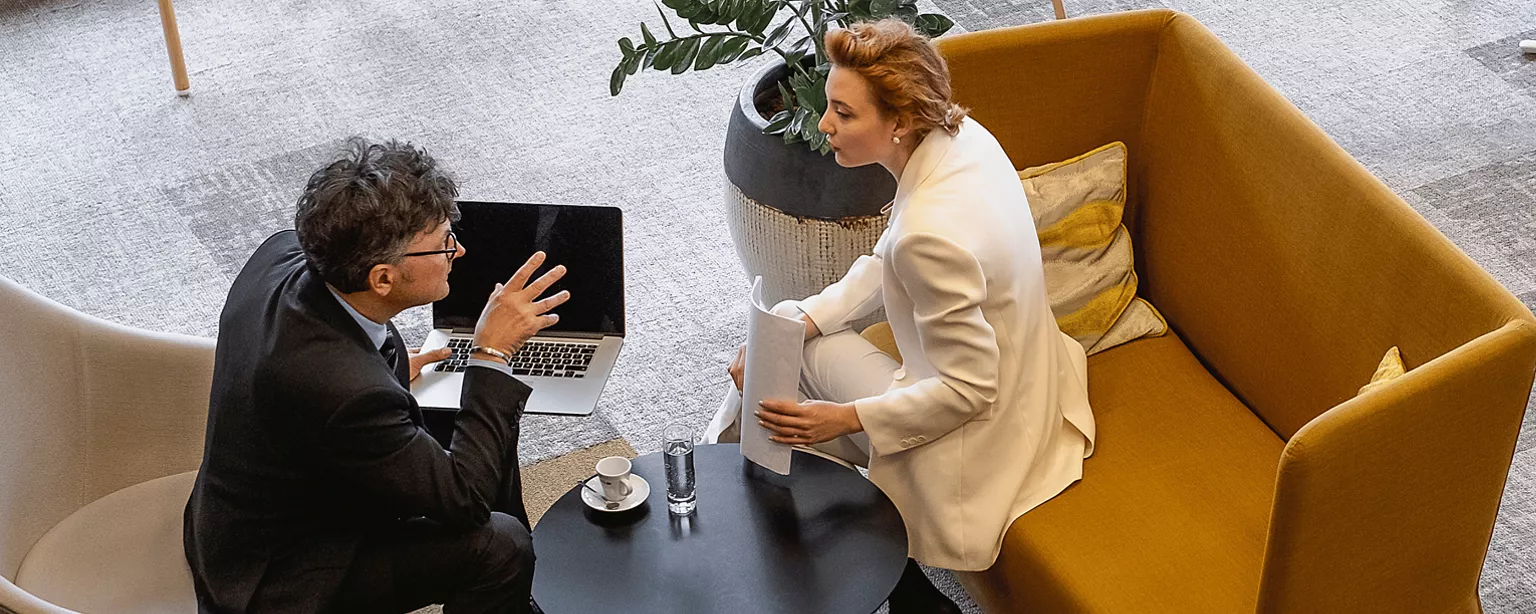Although every job interview is different, of course, most job interviews do have a similar structure and follow the same pattern. This article describes how job interviews typically go, so that you know what you can expect when you have one.
1. The opening of the job interview
A job interview generally begins with the same interview opening. During this opening, the applicant can be asked an informal question to put him or her at ease, coffee or tea can be offered and one might explain precisely how the job interview will take place.
2. Information on the organisation and position
Once the interview has formally opened, the job interview really begins. The next step in the job interview is generally that the lead interviewer tells something about the company and the position you are applying for. For example, he can tell about what the company does, what the company stands for, how many employees the company has and what the position specifically entails. Generally you are already aware of this information, but for the sake of formality it is often nevertheless communicated during the job interview.
3. Asking questions
After giving some general information about the company and the position, your interlocutor starts asking questions. Often somewhat general ones are first asked about your personality, in order to then pose questions about your career and any projects you have been involved in. This part of the job interview is naturally the most important, because here you have to convince your interlocutor(s) that you are the best candidate for the position. How long this part of the job interview goes on differs from company to company. Sometimes it only lasts a half hour, but it can also happen that you end up answering questions for an hour and a half.
4. Your turn to ask questions
When your interlocutors have gathered enough information, you as the applicant will receive a chance to ask questions. Some people at this point say that they don´t have any questions for the company and thus skip right over this step, but it’s better to ask at least one question. In this way you show yourself to be well prepared, serious and enthusiastic, and you give your interlocutors the possibility to ask some counter-questions. It’s good to come up with a few questions before you go into the job interview, so that you always have one ready to ask. This question can be about the job, but it can also be about working conditions or other things connected with the position or the company.
5. The closing
If you have asked one or several questions and these questions have been answered by your interlocutor, then the job interview is done. At that moment the interlocutor often indicates how the interview went in his or her opinion, as well as what the next step will be in the application procedure. The job interview is officially over when you’ve shaken hands with your interlocutor(s), thanked them for the interview and said goodbye.
6. Another way the job interview can go
Although most job interviews take place as described above, it can also happen that a company follows a different pattern. For example, elements can be added, things can be reversed and certain elements can be skipped entirely. Always prepare yourself for the possibility that the job interview might also take place in a different sequence, so that you’re never surprised if the interview follows a different course.







